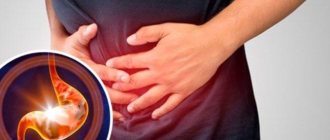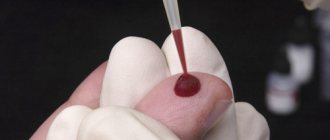- Gallery
- Reviews
- Articles
- Licenses
- Vacancies
- Insurance partners
- Partners
- Controlling organizations
- Schedule for receiving citizens for personal requests
- Online consultation with a doctor
- Documentation
The most dangerous time for helminth infection is summer and autumn. An abundance of fresh vegetables and fruits, constant exposure to the street, relaxation near bodies of water. It would seem that all of the above is very good for health. But only if you follow the rules of personal hygiene.
You can pick up helminths everywhere: in the sandbox, in the garden, on the beach, in kindergarten and in your own hallway, where we bring their eggs on the soles of our shoes. Some children's habit of putting their fingers in their mouth and biting their nails also increases the risk of infection.
Almost all worms are transmitted from person to person through dirty hands. Young children are especially susceptible to such infections. This is facilitated by episodes of weakening of the immune defense of the mucous membranes of the gastrointestinal tract, during the period of viral diseases caused by viruses of the herpetic group (cytomegalovirus, herpes simplex virus types 1 and 2, Epstein-Barr virus), as well as excessive prescription of immunosuppressive drugs.
Infection can occur in utero, as well as through domestic animals, through low-quality food products (meat, fish, milk, vegetables, etc.).
The most common and studied diseases are ascariasis, enterobiasis, toxocariasis, opisthorchiasis and giardiasis.
In recent years, due to the development of international tourism, cases of importation of helminths from southern and Asian countries have become more frequent, many of them remain unstudied.
Description of the disease
Helminthic infestation or helminthiasis (damage to the body by worms) is a widespread phenomenon in childhood. Few children have not suffered from helminthiasis at least once in their life. Manifestations of the disease, as a rule, are known to everyone: the child suffers from itching in the anus (intensified at night), stomach upset, loss of appetite, and a feeling of fatigue.
While in the intestines, the worms feed at the expense of the host’s body, affecting internal organs and systems. Currently, more than 300 varieties of worms are known. The most common in childhood are pinworms and roundworms.
Helminthic infestation requires immediate treatment by a qualified gastroenterologist. While in the child’s body, worms disrupt the process of absorption of nutrients, their waste products have a negative effect on the gastrointestinal tract, and, if left untreated, can affect other vital organs - the lungs, brain, etc.
Types of worms in children
The most common classification of helminthic infestations is depending on the type of pathogen. The following groups of parasites are distinguished:
- nematodes (roundworms): these include roundworms (actually, worms), pinworms, whipworms;
- cestodes (tapeworms): broad tapeworm, pork tapeworm;
- trematodes (flukes): cat fluke, pulmonary and liver flukes and others.
Depending on the characteristics of the life cycle of worms, there are three main types of helminthiasis:
- contact (damage from pinworms, dwarf tapeworm): parasite eggs are transmitted from child to child through dirty hands, household items, etc.;
- geohelminthiasis (infection with roundworms, hookworms, etc.): worm eggs are found in the ground and enter the body when eating unwashed vegetables and fruits, or not following hygiene rules;
- biohelminthiasis (infection with bovine, pork tapeworm, echinococcus): intermediate forms of development of the parasite are found in the body of carriers (fish, shellfish, dogs, etc.), enter the body by eating contaminated meat or by contact.
Analysis collection rules
No special preparation is required before collecting stool for analysis. Before the study, you should not take antibiotics, antiparasitic agents, mineral oil or castor oil for a week.
Collect the test material in a special container - a small container with a screw-on lid (sold in pharmacies). When collecting the analysis, you need to make sure that urine does not get on the feces.
The material for testing must be taken to the laboratory on the day it is collected. If it is not possible to transport feces on time, then it is better to store the container in the refrigerator for no more than a day. Depending on the type of worms, it may be necessary to take from 1 to 6 samples, so the patient must be mentally prepared for this.
Symptoms of worms
There are two forms of helminthiasis with their inherent manifestations: acute and chronic.
In acute helminthiasis, worms enter the body and provoke an immediate immune response in the form of allergic reactions (in connection with this, parents often confuse the presence of parasites with ordinary allergies). Manifestations of chronic helminthiasis can be very diverse. The clinical picture depends on the location of the parasites, their number and the specificity of the body's response to the presence of helminths.
Let us highlight the most characteristic symptoms and indirect signs of the presence of worms in a child:
- general malaise, weakness, fatigue;
- increased body temperature;
- dark circles under the eyes;
- allergic reactions in the form of skin rash (urticaria);
- problems with appetite;
- nausea and vomiting;
- smell from the mouth;
- pain in the abdominal cavity;
- bowel disorders (constipation/diarrhea);
- weight loss;
- itching in the anus;
- excretion of worm fragments in feces.
In addition to these symptoms, children and adolescents may show signs of dysfunction of organs affected by worms. Thus, if the liver is damaged, pain in the right side under the ribs, nausea, and jaundice of the skin may occur. If the lungs are damaged, asphyxia of the respiratory tract, etc. may occur. Children suffering from helminthic infestations are among the most frequently ill. Such children are susceptible to the frequent occurrence of ARVI, stomatitis, gingivitis, vulvovaginitis (girls), etc.
Go to the doctor or treat yourself at home?
To heal the disease, therapy is needed. The duration and intensity of treatment depend on the clinical picture, the secondary nature of the invasion, and the presence of relapses. Today there are many medications and folk recipes for deworming, but treating yourself at home without a diagnosis is wrong!
Important! Medicines for parasites have a high level of toxicity; taking them requires preparation and subsequent rehabilitation of the patient. Prescribing medications on your own may result in negative reactions. Traditional methods are prohibited in case of exacerbation of the disease and have a lot of contraindications.
Only an experienced doctor will determine the entire picture of the pathology and will be able to select therapy depending on the age, weight and individual characteristics of the patient’s body. Self-medication with medications is dangerous, especially for children. It is much easier to find out which doctor treats worms in children and bypass the indicated treating doctors to get a complete clinical picture of the pathology.
Causes of worms in children
The main reason for the incidence of helminths is the widespread prevalence of parasite larvae and eggs in the child’s environment and non-compliance with personal hygiene rules. The method of spreading parasitic infection is fecal-oral. Helminth eggs are shed in the feces of infected people and animals.
After using the toilet, worm eggs may remain on the skin of the hands, under the nails or on the underwear. Most often, children become infected in places where large numbers of people gather (in kindergartens, schools, playgrounds). Infection occurs through sharing toys, sports equipment, etc.
In addition, the following reasons for the development of helminthic infestation are identified:
- consumption of poor-quality water and food contaminated with helminth eggs;
- use of other people's personal items (towels, linen);
- poor processing of vegetables and fruits;
- close contacts of the child with domestic and street animals.
The high incidence of helminthiasis infection in early childhood is due to the exploratory instinct of a small child. Until 2 years of age, the main form of cognition of the surrounding reality is oral. The kids are trying to get their teeth into all the subjects. That is why it is important for parents to pay special attention to the cleanliness of objects and things surrounding the child.
Parasitologist - description, doctor's advice:
E Zh Ts Sh Shch Yu Ya
Children's doctors
- Who is a Parasitologist
- What is the competence of a Parasitologist?
- What diseases does a Parasitologist deal with?
- What organs does a parasitologist deal with?
- When should you contact a Parasitologist?
- When and what tests should be done
- What are the main types of diagnostics usually carried out by a Parasitologist?
- Advice from a parasitologist
- Sign up for an appointment with the doctor
Who is a Parasitologist?
Engaged in the diagnosis and treatment of diseases caused by various parasites - amoebas, worms, chlamydia, etc.
What is the competence of a Parasitologist?
Studies human parasites and the diseases and pathological conditions they cause, methods of preventing infection, methods of treating an infected or sick person.
What diseases does a Parasitologist deal with?
Toxoplasma causes many deformities, congenital diseases in children, and mental retardation. Fungi – an abundance of various diseases, the formation and development of oncology. Giardia - affects the liver and causes a lot of liver diseases. Roundworms cause pulmonary, biliary and intestinal diseases. Pinworms – an abundance of intestinal diseases. Fascioliasis – causes allergies, biliary dyskinesia, chronic hepatitis. Asciolopsidosis – is involved in the formation and development of various oncological diseases. Many diseases begin in childhood in adults. Chlamydia spends its reproduction period in Trichomonas, where it forms microcolonies. They cause inflammation in the genital organs (purulent discharge, destruction of tissue structure, loss of organ functions), infertility, visual impairment (eyes that fester in the morning indicate the “work” of chlamydia), the digestive system (various disorders of the digestive system, inflammation of the pancreas, diabetes, liver disorders), destroy the walls of blood vessels. Gynecological pathology accompanies chronic diseases of the urinary system. Girls experience menstrual cycle disorders. Infertility is the most serious complication of urogenital chlamydia. Ectopic pregnancy, stillbirth, premature birth, recurrent miscarriage, threat of miscarriage in all stages of pregnancy are the consequences of chlamydia. Chlamydia is common in children over 1 year of age; ornithosis, which in some cases becomes protracted for up to 3 months, and pneumosclerosis develops; felinosis (cat scratch disease), the clinical diagnosis of which is very difficult; Reiter's disease (urethritis-arthritis-conjunctivitis). Parasitologists have established and proven that the tumor cell is a flagellate form of Trichomonas. The tumor is a colony of flagellated trichomonas that have switched to a sedentary lifestyle. A tumor is formed by the budding of trichomonas and as a result of their incomplete reproduction, when the daughter cells, without separating from the mother cells, give rise to new cells. Trichomonas vaginalis is a parasite in the human genitourinary system. Of the three types, it is the most malignant, 25 times greater than the oral one! It causes colpitis, cystitis, cervicitis, bartholinitis in women, and in men: urethritis, prostatitis, vasiculitis, epididymitis and orchitis. Oral Trichomonas - found very often in the oral cavity of persons with carious teeth, as well as in persons suffering from gingivitis and periodontal disease. It is she who causes these diseases. Lives in gum pockets. Intestinal Trichomonas - lives in the digestive tract. Compared to the vaginal and oral ones, it is much more resistant to external factors (after all, it must resist the digestive enzymes of the gastrointestinal tract). Opisthorchiasis This disease is caused by a parasitic fluke, the cat fluke, that parasitizes the bile ducts of a child. Infection occurs when eating half-raw, lightly salted fish. Another source of infection is a sick person who releases parasite eggs into the external environment. Prevention is sufficient cooking of fish. The disease manifests itself as symptoms of damage to the liver, bile ducts, gallbladder and pancreas. In addition to pain in the right hypochondrium - dyspepsia, nausea, vomiting, drooling, low fever. Cestoses This name brings together diseases caused by a class of tapeworms, characterized by the peculiar structure of the head, equipped with an attachment organ, tape-shaped. Hymenolepidosis is caused by the dwarf tapeworm. There are about eleven species of diphyllobothriasis pathogens, the most common of which is the broad tapeworm. Infection occurs by eating undercooked or undercooked fish. Taeniarinhoz is caused by bovine tapeworm. Tennoz - pork tapeworm. Both of these diseases are caused by eating raw or undercooked meat that contains viable larvae called fins. Echinococcosis The causative agent is echinococcal tapeworm. Echinococcal cysts can often be found in the liver. The source of human infection is a dog, on whose fur there are mature segments filled with helminth eggs. Infection is also possible through vegetables, berries, and foods contaminated with dog feces. A completely different clinic for helminthic infestations caused by parasites from countries with a tropical climate. They often affect the skin, eyes or nasal cavity. Tropical helminthiases are very difficult and their diagnosis requires highly qualified infectious disease specialists and parasitologists.
What organs does a parasitologist deal with?
All organs that are affected by parasites.
When should you contact a Parasitologist?
Symptoms of infection by parasites: Most helminthiases are characterized by a long course and a wide range of clinical manifestations - from asymptomatic to severe forms. If a person is the definitive host for the parasite, then, as a rule, the disease manifests itself: - Chronic fatigue. — Headaches — Appetite disorders, attacks of severe hunger. - Increased salivation, especially at night. — Gastrointestinal tract disorders (“stomach discomfort,” pain, increased gas formation, constipation or diarrhea, stool changes, etc.). - Pain in muscles and joints. — Allergic reactions, bronchial asthma. — Skin rashes, eczema, itchy dermatoses. — Anemia (usually B12 deficiency) — Decreased immunity, frequent bacterial and viral diseases. - Hyperactivity in children. — Depression, anxiety and other nervous system disorders. - Frequent awakenings, especially between 2 and 3 am. — Problems with weight (difficulty losing or gaining weight). If a person is an intermediate host for the parasite, then, as a rule, the disease occurs with pronounced clinical manifestations and often ends in death. Once in the body, Trichomonas are spread throughout the body through the blood and lymph. They cleverly evade immunity through camouflage, moving from one to other stages of formation. At the same time, the human body intensively absorbs nutrients, “eats” red blood cells, leukocytes, vitamins and microelements, and releases large quantities of lactic acid, peroxides, enzymes, “bad” cholesterol and other poisons, which poison the body. This leads to the development of anemia, exhaustion and oxygen starvation. Immunity decreases, disturbances occur in the nervous system, hematopoietic and lymphoid tissues are destroyed, and the normal environment of the body is distorted. Chlamydia uses Trichomonas as a birthing center and for protection from adverse conditions (for example, to avoid chemicals that destroy them). Trichomonas for chlamydia is a very large creature that swallows them in order to digest and get enough of them, but chlamydia manages to form a protective cocoon around itself and remains to live in it. Chlamydia themselves can pass through the pores in the membrane of Trichomonas and multiply in it, like its parasites, while making Trichomonas more active, i.e. more malignant. In order for a person to have a heart attack, in addition to infection with chlamydia, other unfavorable conditions that have arisen in the body are also necessary: general weakness of the body, weakened immunity, consumption of excess food, bad eating and living habits - fatty, sweet foods, alcohol, nicotine, etc. P.; emotional stress; poor condition of the vascular system, as a consequence of portal hypertension. Typically, such unfavorable conditions are created in the body of any living person by gravity by the age of 40-50. As soon as a favorable environment is created for the life of chlamydia, microorganisms penetrate through the bloodstream into the walls of the heart vessels and destroy their tissue. A scar appears on the inner wall of the vessel, it impedes the flow of blood, the pressure rises, and the load on the heart increases. With age, scars become more and more numerous, the heart lacks oxygen, and heart muscle tissue begins to deteriorate. At some point, the wall cannot withstand the overstrain - a heart attack occurs. Chlamydia is tenacious, and, in addition, knows how to “hide” in white blood cells. That is why the body itself almost does not fight chlamydia, it simply does not notice them. Protection against them is antiparasitic treatment, boosting immunity by all available means.
When and what tests should be done
Immunological studies: - Amebiasis; — Ascariasis; — Giardiasis; — Malaria; — Strongyloidiasis; — Toxoplasmosis; — Toxocariasis; — Trichinosis; — Teniosis; - Echinococcosis. And also: - feces on helminth eggs; - urine; — duodenal contents; - sputum; - scraping of the perianal area; - subungual phalanges.
What are the main types of diagnostics usually carried out by a Parasitologist?
— Helminth-ovocoproscopy; — Vegetative resonance testing (VRT); — X-ray; - Ultrasound; — Biopsy; — Electron microscopy; — Histocoprology.
Advice from a parasitologist
Enterobiasis To prevent illness and self-infection with enterobiasis, it is necessary to carefully monitor the cleanliness of hands (especially in children), cut children's nails short, and change underwear daily. It is important that all members of the family, children's team and staff undergo treatment at the same time as the child. Helminth eggs are covered with a sticky substance that prevents them from being torn off from the surfaces on which they find themselves. Therefore, you can remove them from your hands, as well as from vegetables, herbs, fruits, household items and shoes only with the help of special detergents. Ascariasis Prevention. First of all, you need to ensure that the soil of personal plots and courtyards, as well as playgrounds and sandboxes, are not contaminated with human and animal feces. In addition, roundworm eggs are very sensitive to direct ultraviolet rays - the sun is harmful to them. Therefore, the sand in children's sandboxes should be loosened daily, moving the lower layers upward, under direct ultraviolet rays. The substances secreted by the roots of some plants, for example, calendula, peas, oats, and lupine, help fight such parasites no less effectively, so it is advisable to find a place for them in your garden plot. And finally, you must teach your child to wash his hands thoroughly after playing on the ground. Helminth eggs are covered with a sticky substance that prevents them from being torn off from the surfaces on which they find themselves. Therefore, you can remove them from your hands, as well as from vegetables, herbs, fruits, household items and shoes only with the help of special detergents. Toxocariasis Prevention. Washing hands after contact with soil or animals; Thorough processing of greens, vegetables and other foods that may contain soil particles. Helminth eggs are covered with a sticky substance that prevents them from being torn off from the surfaces on which they find themselves. Therefore, you can remove them from your hands, as well as from vegetables, herbs, fruits, household items and shoes only with the help of special detergents. In this case, it is better to pre-soak greens, vegetables and fruits in water with the addition of special detergents, and then wash them thoroughly, wiping them with your hands, a sponge or a cloth. It is necessary to protect playgrounds, parks, and public gardens from animal visits; use of natural soil remediation factors (open sunlight). Trichenellosis Prevention. To prevent infection with trichinosis, pork, meat of wild boar, badgers, nutria, bears, and other omnivores and carnivores should be properly prepared. Raw pork meat and pork products should be stored frozen. For Trichinella to die, the temperature inside the meat during cooking must be at least 65 degrees, and its color must change from pink to gray. The fight against trichinosis consists of exterminating rats living in pigsties and checking meat going on sale. You should not buy meat products without a mark on carcasses and hams. Trichocephalosis Prevention. Keep your hands clean, thoroughly wash fruits and vegetables before eating, and fight “uninvited” guests in the kitchen - flies. Hookworm disease (hookworm and necatoriasis) Carrying out deworming of mines and land plots. Sanitary education work among the population of endemic areas. Wearing shoes in areas where soil is likely to be contaminated with fecal matter. A month after deworming, a control scatological examination is recommended. Annual studies are carried out for hookworm for 4 years. Strongyloidiasis Carrying out deworming of contaminated land plots, sanitary and educational work about the dangers of walking barefoot on the ground. Filariasis Includes identification of patients and implementation of measures aimed at the destruction of mosquitoes and protection against them.
Parasitologist |
Is something bothering you? Do you have questions or need an inspection? You can make an appointment with a Parasitologist by choosing the clinic that is most suitable for you in the “All Medicine” section. For any other questions, the Euro lab is always at your service! The best doctors will examine you, advise you, provide the necessary assistance and make a diagnosis. Euro lab clinic is open for you around the clock.
How to contact the clinic: Phone number of our clinic in Kiev: (+38 (multi-channel). The clinic secretary will select a convenient day and time for you to visit the doctor. Our coordinates and directions are listed here. Look in more detail about all the clinic’s services on its personal page.
| (+38 |
If you have previously performed any studies, be sure to take their results for a consultation with a Parasitologist. If the studies have not been performed, we will do everything necessary in our clinic or with our colleagues in other clinics.
It is necessary to take a very careful approach to your overall health. There are many diseases that at first do not manifest themselves in our body, but in the end it turns out that, unfortunately, it is too late to treat them. undergo examination by a Parasitologist several times a year in order not only to prevent a terrible disease, but also to maintain a healthy spirit in the body and the organism as a whole.
If you want to see a doctor, use the online consultation section, perhaps you will find answers to your questions there and read the Parasitologist’s advice on caring for yourself . If you are interested in reviews about clinics and doctors, try to find the information you need on the forum - perhaps after that you will no longer be bothered by the question “ recommend a good Parasitologist ”. Also register on the Euro lab to be constantly aware of the latest news and updates on the site, which will be automatically sent to you by email.
Other medical specialties starting with the letter “P”:
| Parkinsonologist (see also Neurologist) |
| Periodontist |
| Pediatrician |
| Pediatrician-neonatologist |
| Perinatologist |
| Plastic surgeon |
| Podologist |
| Proctologist |
| Occupational pathologist |
| Psychiatrist |
| Psychiatrist-narcologist |
| Psychologist (see also Psychotherapist) |
| Neuropsychiatrist |
| Psychotherapist (see also Psychologist) |
| Pulmonologist |
If you are interested in any other medical specialties or have any other questions or suggestions, write to us, we will definitely try to help you.
Diagnosis of worms
If any symptoms indicate that your child may have worms, it is important to immediately go to the doctor.
Due to the nonspecific symptoms of helminthiasis, parents often turn to various specialists (pulmonologists, allergists, immunologists, etc.), suspecting serious illnesses in the child. However, the cause of the symptoms that arise can often lie in the body being damaged by parasites. That is why children with chronic dermatitis, gastroenterological pathologies and pulmonary diseases, frequent vulvovaginitis in girls, must be examined for the presence of helminths. Since helminths usually predominate in the intestines, in order to identify helminthic infestation, the patient is first referred for a stool examination. The analysis will help identify the presence of parasites in the child’s gastrointestinal tract, as well as determine the type of worm that has penetrated.
In addition, the following methods for diagnosing helminthiasis can be used:
- general blood analysis;
- radiography;
- Ultrasound;
- MRI;
- CT;
- endoscopy with biopsy.
The main task of diagnostic measures is to confirm the presence of helminths in the body, determine their type and exact location. In accordance with the research data obtained, doctors select the most appropriate treatment for a particular case.
Who can you contact if you suspect helminthiasis?
Many patients do not know which doctor to see for worms? Helminthiasis is dealt with by specialists:
- Parasitologist;
- Helminthologist;
- Infectious disease specialist;
- Gastroenterologist.
Parasitologist
Herb Troychatka Evolar: reviews of parasitologists about the medicine
A doctor who treats helminthiasis, identifying the dynamics and extent of damage by the parasite. This doctor treats children and adults. Having identified the symptoms, the doctor prescribes medications for parasites in the body. Diagnostic measures include examination of internal organs where a particular parasite is localized. As a rule, helminths of a certain type have their “favorite” places inside the patient, and only a specialized parasite doctor will be able to identify all infestations.
After treatment, the worm doctor prescribes preventive measures and talks about the necessary measures against helminth infection. The same doctor will “guide” the patient for a long period of time to stop re-infection and minimize relapses.
Helminthologist
When choosing which doctor to go to for worms, you can contact a helminthologist. The narrow specialization of a helminthologist allows us to fight almost any type of parasite. And if you are in doubt about determining which doctor treats worms and parasites, then a helminthologist will be able to cure worms in adults and children forever with the most effective medications. Diagnostic measures are carried out to find out:
- the degree and nature of the impact of parasites on humans;
- route of infection of the patient;
- susceptibility of invasions to medications.
When choosing which doctor to treat helminthic infestation in children, you should contact a helminthologist. The doctor knows all the clinical manifestations of helminthiasis and successfully diagnoses the disease, treats it and guides the patient until complete recovery.
Infectious disease specialist
Which doctor treats parasites that cause intestinal infections? This is an infectious disease specialist. The narrow specialization of doctors allows them to deal with parasites that cause intestinal damage and provoke the spread of microbes. A professional is responsible for infections of such organs as:
Drugs for the treatment of tapeworms in humans
- intestines;
- Airways;
- leather;
- blood.
In case of primary symptoms occurring in the designated organs, it is necessary to consult an infectious disease specialist. It is he who will highlight the clinical symptoms characteristic of a particular infection and prescribe treatment.
Gastroenterologist
If there is evidence of parasites in the intestines or stomach, you should go to a gastroenterologist. Causing enormous harm to the patient's digestive system, invasions poison the body, causing pathologies and developing them.
What is the name of the doctor who treats helminthic infestations? The therapist will tell you which specialist to contact, but it is better to go through all the doctors in order to finally diagnose the disease and get rid of the disease.
Treatment of worms
Effective treatment of worms in children is aimed at combating parasites at all phases of development (at the egg, larvae and adult stages), eliminating the consequences of their vital activity, relieving unpleasant symptoms and restoring the child’s body. For this purpose, the patient is first selected to take antihelminthic drugs in the form of tablets, suppositories or suspensions. The products will help block the muscle and nervous system of parasites, followed by their removal from the body naturally (through feces).
In some cases, taking an anthelmintic drug alone is not enough. A comprehensive approach to the recovery process is required. For this purpose, the child is prescribed the following groups of drugs:
- Enterosorbents - for removing harmful toxic waste products of worms from the body.
- Probiotics – to restore intestinal microflora after helminthic infestation.
- Antihistamines - to prevent and eliminate allergic manifestations accompanying helminthiasis.
- Immunomodulators – to maintain the child’s body’s defenses.
- Glucocorticosteroids are indicated in severe forms of the disease to suppress the pathological immune response.
It should be noted that the condition for effective treatment of the disease is the simultaneous administration of therapy to all members of the child’s family (to prevent re-infection).
Complications (helminthic infestation)
It is important for parents to both understand in a timely manner that their child has symptoms of worms and to carefully follow all the doctor’s recommendations. Only in this case can unpleasant and even life-threatening complications be avoided:
- intestinal obstruction;
- jaundice caused by blockage of the bile ducts;
- pancreatitis;
- pustular skin lesions;
- appendicitis;
- acute pulmonary failure;
- eye damage, accompanied by decreased visual acuity and development of strabismus;
- damage to the intestinal wall, peritonitis;
- encephalitis, megingoencephalitis, etc.
Prevention of worms
In order not to think about what to do if a child has worms, you must adhere to the following rules:
- Develop personal hygiene skills in your child as early as possible.
- Keep your child's hands clean.
- Drink only clean water.
- Wash fruits, vegetables and herbs thoroughly before eating them.
- Carry out the necessary heat treatment of meat and fish.
- Conduct timely vaccination and deworming of pets.
If parents suspect that their child has helminths, they should immediately consult a specialist. Doctors at the SM-Doctor clinic for children and adolescents will help quickly diagnose helminthiasis and prescribe appropriate treatment that will destroy the identified pathogens.










